How nonprofits make an impact: Hilary Pennington with Tim Delaney

Transcript
[Tim Delaney, a white man with gray hair, wearing glasses and a blue shirt, sits for a video conversation with Hilary Pennington, a white woman with short blonde hair, wearing a pink sweater.]
[on-screen text: Tim Delaney, President & CEO, National Council of Nonprofits]
TIM DELANEY: I see this as the Great Disruption, where we as people need to then start paying attention that we’re all in this together. And if I might illustrate it with this.
[Tim holds up a Hoberman sphere, a multicolored plastic toy made of interconnected rods with hinged joints that allow it to expand and contract. In its collapsed form, it’s about the size of a basketball and the folded rods make for a spiky surface. Tim points to different areas on the surface to indicate the “separate silos” the nonprofit world tends to operate in. He then pulls on the edges of the toy and its scissor-like joints cause the structure to open up, expanding threefold until the surface becomes a smooth network of interconnected pathways.]
This is the nonprofit community, and we are normally jammed into separate silos. We are in the silo of health care or education or faith-based. We are jammed in the separate silos of geography, of Hawaii and Massachusetts … But what if we started to share that information and have it go around, so we’re not having to duplicate it but we are then enlarging what we do? And that’s really what I see to connect people together and expand out so we have greater impact.
[on-screen text: Hilary Pennington, Executive Vice President of Programs, Ford Foundation]
HILARY PENNINGTON: I couldn’t agree with you more and, you know, I think that, you know, strong policies require strong movements.
[on-screen graphic: Social Justice Leaders on What Matters, Hilary Pennington with Tim Delaney]
HILARY: Tim is the president and CEO of the National Council of Nonprofits, which is the leading resource and advocate for the nonprofit sector in the United States. Today, we’re here to talk with Tim about our field in this moment and going forward.
I’m really glad to be talking with you, Tim.
TIM: Great. Thank you, Hilary.
HILARY: The first thing I’d love to talk about with you is, you know, one of the old frames for the nonprofit field is—quote, unquote—the third sector, meaning, ostensibly filling the gaps and need where government and business fail. And in the COVID-19 era, as we’ve certainly seen, governments, in some cases more than others, struggle to meet the moment. And businesses have been focused mainly on survival. Has the nonprofit sector stepped up in new ways?
TIM: The nonprofit community has done a phenomenal job of stepping forward. We are filling the gaps of government and the business sector. We’ve already been in those gaps, and we’ve had challenges before COVID hit. And what’s happened since is it’s actually gotten worse, with more Americans relying on charitable nonprofits.
Nonprofits, just like in the for-profit business community, we have to make our financial ends meet, as well. And yet, most nonprofits—97% of charitable nonprofits—have revenue of $5 million or less a year, and 92% have a million or less. And so all these organizations and the people are out there in communities working with folks, but they themselves are having to struggle just to survive.
HILARY: You hear that, you know, as many as half of nonprofit organizations could really be damaged, could even conceivably go out of business. You know, we see in the newspaper, all the headlines are really more about small businesses and restaurants. But to what extent have any of the relief packages helped the nonprofit sector out?
TIM: I’m proud that the National Council of Nonprofits has played a leadership role, working with our colleagues to step forward. It started with the Families First Act. We had a solution that would make sure that nonprofits were involved, because in all previous stimulus packages, historically, nonprofits get forgotten. And so we were able to jump in there and convince them to then include nonprofits. And, ever since, nonprofits have been in all the other packages.
Then, in the Cares ACT, we were able to make sure that nonprofits—all 501(c)(3) organizations—were eligible for the forgivable PPP loans, which has brought billions of dollars to the nonprofit community, not so much just for nonprofits to survive but to actually do the work for people in their local communities.
HILARY: Well, that’s—you, you have really been a force on behalf of all of us, I have to say, Tim.
You know, there have always been two somewhat opposed ways of seeing the role of the nonprofit sector. You know, one is sort of downstream, meeting needs and solving problems where government and business fail or are not as well equipped as the nonprofit sector. But the other role, that I think gets less attention, is more upstream. In other words, that it is the nonprofit sector that holds government and business accountable, and helps to create and shape the norms and, really through advocacy, the very laws through which the other sectors operate. And I’m curious how you think about that. You know, is this an either-or—those upstream and downstream roles? How do you see those roles balanced?
TIM: I see it more as a both-and, as opposed to an either-or, because all are needed where there are failures. Government can’t regulate itself. It needs to have someone else playing those roles. Here at the National Council of Nonprofits, we don’t see ourselves as a trade association that’s trying to protect nonprofits. We see nonprofits as simply the vehicle through which the American people can come together to make community decisions about items of interest to themselves, advancing their self-interest with the community. If I’m concerned about literacy, I can then start or join a nonprofit focused on that. If I’m concerned about the arts, I can do that. If I’m concerned about government accountability, if I’m concerned about making sure kids have something to eat, I can do that. I really view it as a place where we as Americans come together to work together to solve community problems.
HILARY: And to hold ourselves, all of us, accountable.
But what does the nonprofit sector need in this moment?
TIM: The threats to the sector are significant. Just as the threats to the American people are significant right now. And I’m really proud of the role that nonprofits have played, to step forward and speak out to make sure that governments take certain actions.
I believe in my core that the problem is we have for too long, as the American people, not engaged with our government, and we’ve been sitting back on the sidelines. For the last 50 or so years, there has been a decline of the view of “we,” and it’s been shifting more and more towards “I.” I see this as the Great Disruption, where we as people need to then start paying attention that we’re all in this together. And if I might illustrate it with this.
[Tim holds up a Hoberman sphere, a multicolored plastic toy made of interconnected rods with hinged joints that allow it to expand and contract. In its collapsed form, it’s about the size of a basketball and the folded rods make for a spiky surface. Tim points to different areas on the surface to indicate the “separate silos” the nonprofit world tends to operate in. He then pulls on the edges of the toy and its scissor-like joints cause the structure to open up, expanding threefold until the surface becomes a smooth network of interconnected pathways.]
This is the nonprofit community, and we are normally jammed into separate silos. We are in the silo of health care or education or faith-based. We are jammed in the separate silos of geography, of Hawaii and Massachusetts … But what if we started to share that information and have it go around, so we’re not having to duplicate it but we are then enlarging what we do? And that’s really what I see to connect people together and expand out so we have greater impact.
HILARY: Really powerful.
There’s a lot of controversy over whether foundations support nonprofits in the best possible way. And so I’m curious how you think the sector itself may change coming out of this crisis.
TIM: There are a couple of trends we’re already seeing. One is the consolidation. We are seeing more and more nonprofits at the local level turning to each other as a matter of survival, of just coming together because so many are on the ropes, and it’s a way to make sure that their missions live on. There’s not a lot of funding for that consolidation work, which is important.
In terms of where the sector needs to head? Again, I think it comes back to advocacy. Individuals need—and I think they have a right to—have a voice in their own futures. And if I, as an individual, go out there and say, “We need this” or “We need that,” I’m not heard in the cacophony of noise. But if I join together with others, I can be heard. And then we can have an impact.
HILARY: You know, strong policies require strong movements. You know, really, thank you for that, but also just so much thanks for your work and your leadership.
TIM: Thank you.
HILARY: And I look forward to keeping in conversation with each other.
TIM: Be safe. Be well.
HILARY: You, too.
[on-screen text: What’s your take? Join the conversation]
[on-screen graphic: Ford Foundation logo]
Accessibility Statement
- All videos produced by the Ford Foundation since 2020 include captions and downloadable transcripts. For videos where visuals require additional understanding, we offer audio-described versions.
- We are continuing to make videos produced prior to 2020 accessible.
- Videos from third-party sources (those not produced by the Ford Foundation) may not have captions, accessible transcripts, or audio descriptions.
- To improve accessibility beyond our site, we’ve created a free video accessibility WordPress plug-in.
“We see nonprofits as simply the vehicle through which the American people can come together to make community decisions about items of interest to themselves.”
In the United States, there are more than 1.3 million charitable nonprofits, all of which share one common goal: to make the world a better place. Tim Delaney, President and CEO of the National Council of Nonprofits—the leading resource and advocate for the nonprofit sector in the US—has had a long career helping organizations turn their goals into realities.
Tim joined Ford’s Hilary Pennington over Zoom to talk about the role of nonprofits and philanthropy in today’s society, and how the intersection of nonprofits and philanthropy benefit the American people.
Learn more about the National Council for Nonprofits at www.councilofnonprofits.org.
Other videos in this series
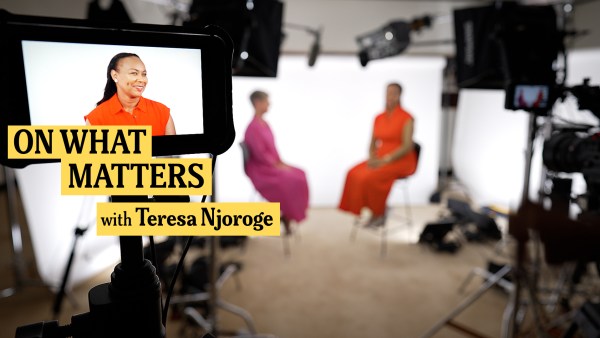
The Power of Restorative Justice With Teresa Njoroge and Hilary Pennington
Teresa Njoroge, founder and CEO of Clean Start Solutions and criminal justice reform advocate, and Hilary Pennington, executive vice president of programs at the Ford Foundation, discuss helping people who have been through Kenya’s justice system find new dignity and hope through employment.
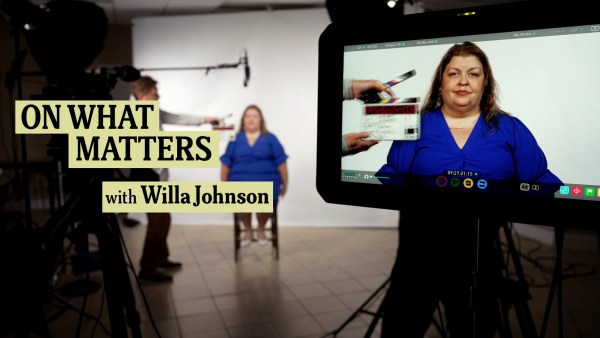
The Power of Appalachian Art With Willa Johnson and Sarita Gupta
Willa Johnson, director of the film department at Appalshop, and Sarita Gupta, vice president of U.S. programs at the Ford Foundation, discuss heartland creativity and amplifying rural narratives.
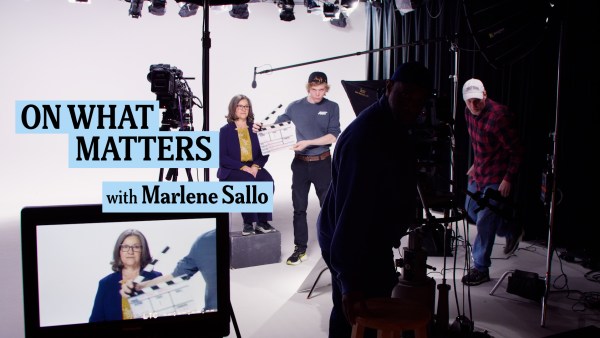
Centering Disability Rights and Justice With Marlene Sallo and Hilary Pennington
Marlene Sallo of the National Disability Rights Network and Hilary Pennington of the Ford Foundation talk about the systems that support and fail the disability community and how disability justice is essential to building a multiracial democracy.
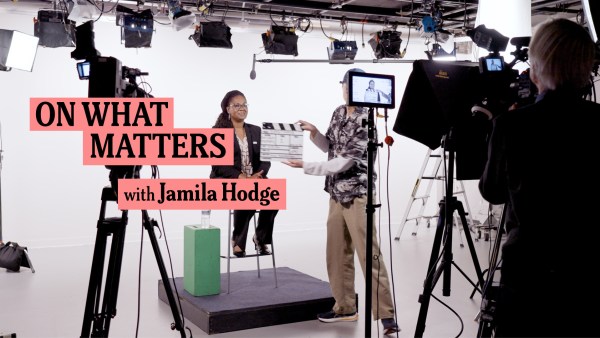
Advancing Community-Based Violence Intervention With Jamila Hodge and Sarita Gupta
Jamila Hodge of Equal Justice USA and Sarita Gupta of the Ford Foundation talk about community-based violence intervention and the importance of promoting a trauma-informed public health response to violence. Jamila explains how, if we want to address institutional racism, we must address the root causes of violence and center those most impacted.
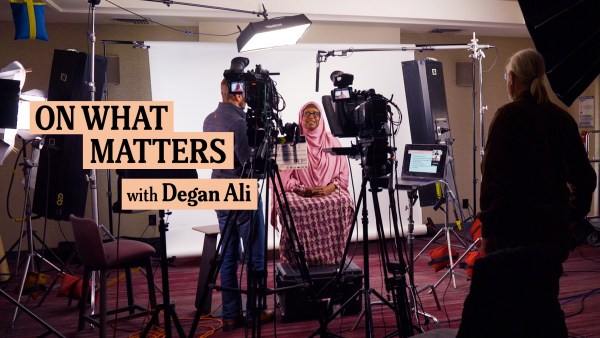
Decolonizing Humanitarian Aid With Degan Ali and Martín Abregú
Degan Ali and Martín Abregú talk about shifting to locally led development and decolonizing aid. Degan shares why we must rethink current structures of providing aid and have local civic society organizations play a stronger and more strategic role in global policy debates.
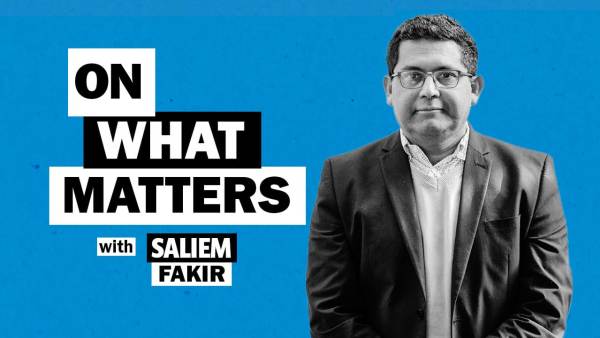
Working Towards a Truly Just Energy Transition with Hilary Pennington and Saliem Fakir
Saliem Fakir, the founder and executive director of the African Climate Foundation, the first grantmaking foundation in Africa focused on furthering solutions for sustainable climate development, joins Hilary Pennington to discuss the urgent need to address climate change and South Africa’s promising Just Energy Transition Partnership.
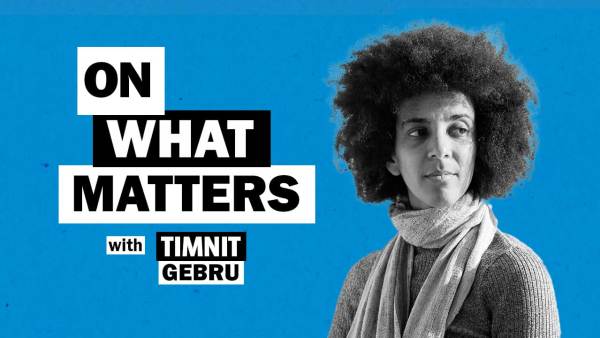
Making AI systems more just with Hilary Pennington and Dr. Timnit Gebru
Dr. Timnit Gebru, founder and executive director of the Distributed Artificial Intelligence Research Institute (DAIR), joins Hilary Pennington to discuss how an inclusive and collaborative approach to creating AI systems can address the uneven benefits and harmful impacts of technology on society.
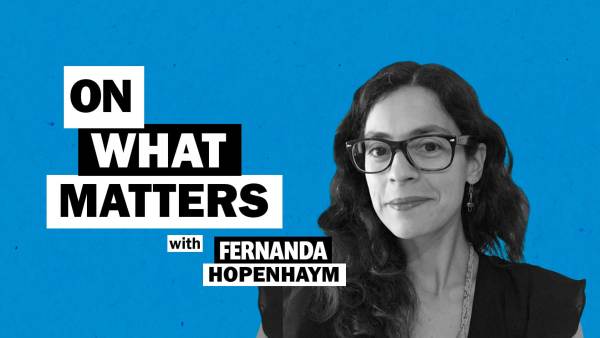
Holding corporations accountable with Hilary Pennington and Fernanda Hopenhaym
Fernanda Hopenhaym is the co-executive director of the Project on Organizing, Development, Education, and Research (PODER), a nonprofit in Latin America that pushes for corporate accountability for human rights and environmental abuses. Fernanda and Hilary discuss how to keep businesses ethical and transparent by using feminist and human rights organizing strategies.
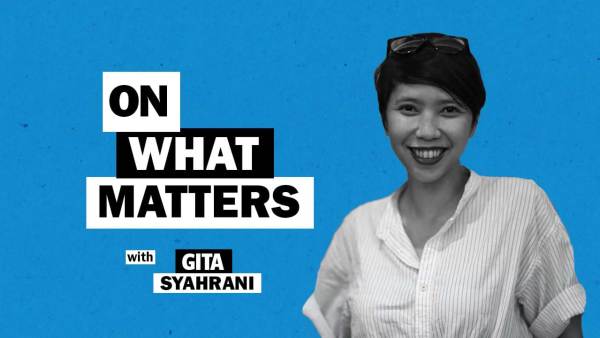
Saving forests while eradicating poverty with Hilary Pennington and Gita Syahrani
Hilary Pennington talks with Gita Syahrani about how engaging Indigenous and local communities in sustainability efforts can lead to greater economic mobility for them. Her work shows how civic engagement at the district level can have global impact.
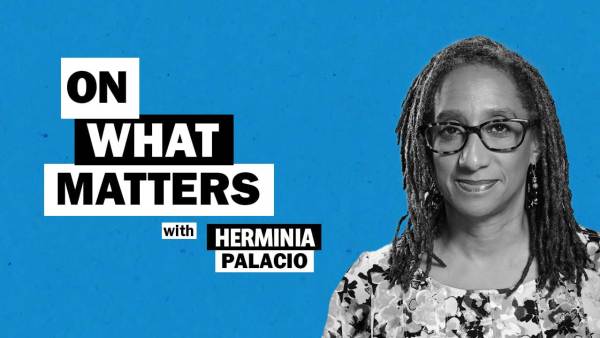
The future of reproductive justice with Hilary Pennington and Dr. Herminia Palacio
Hilary Pennington and Dr. Herminia Palacio discuss this moment in the reproductive justice movement, how different communities are impacted, and what the United States can learn from countries that have won gender and reproductive health victories.
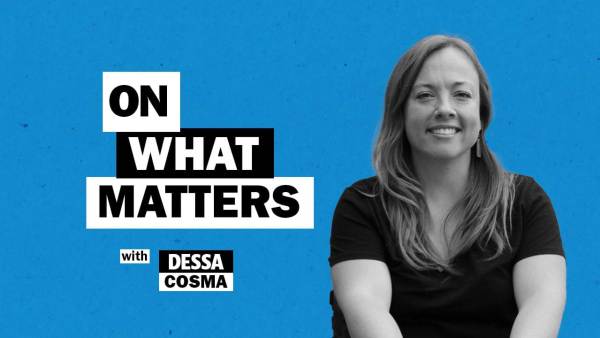
Reimagining how we think about disability with Hilary Pennington and Dessa Cosma
Hilary Pennington talks to Dessa Cosma about disability justice and inclusion. They discuss the importance of using intersectional approaches to activism and how to restructure the economy to be more just for disabled people.
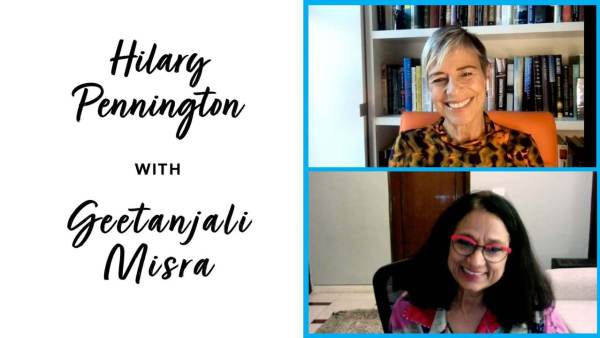
The future of feminism: Hilary Pennington with Geetanjali Misra
Geetanjali Misra has bore witness to the evolution of feminism both on the ground in the U.S. and India and in her work as an activist. Seeing patterns change and movements shift, she speaks about the importance of intersectionality in building a more inclusive feminist future.
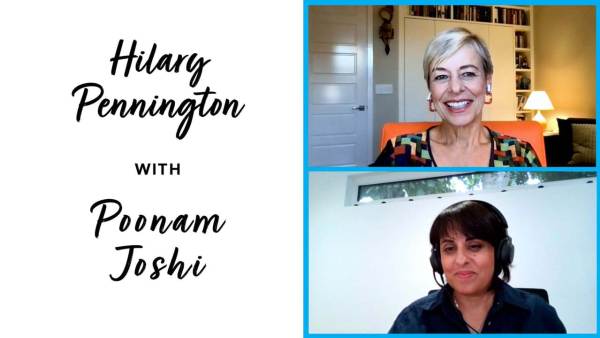
COVID’s impact on civic space: Hilary Pennington with Poonam Joshi
Civic space is essential for democracy. It allows people to participate in society and communicate freely and without discrimination. But, according to Poonam Joshi, director of Funders’ Initiative for Civil Society director, there are threats that need to be addressed before we solidify the civil society we want in the future.
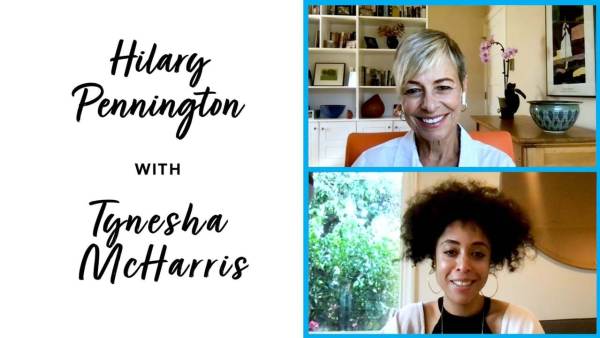
Funding Black feminism: Hilary Pennington with Tynesha McHarris
Black feminist movements are advancing social justice globally. Tynesha Harris, one of the founders of the Black Feminist Fund, aims to channel more support to movement leaders and create a model of true solidarity. Racial, gender, and class injustice need an intersectional approach that acknowledges the inherent value of Black women.

Philanthropy and environmental justice: Hilary Pennington with Laura García
When it comes to climate change, time is running out. But communities all over the world are working on solutions, and philanthropy needs to center their ideas and perspectives to win this fight. Laura Garcia, CEO of GlobalGreen Grants Fund, shares how funding grassroots movements can address challenges at the intersection of social and environmental justice.
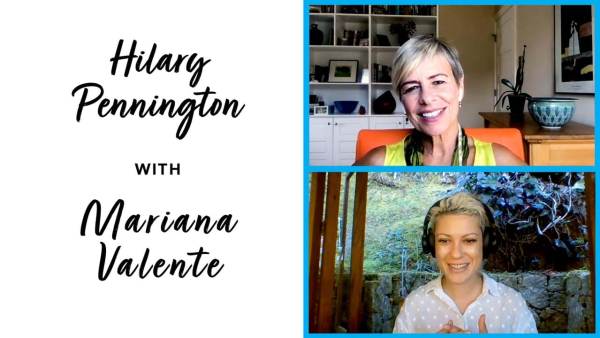
Technology and gender: Hilary Pennington with Mariana Valente
The internet is a force for good, but it must be guided by fundamental human and privacy rights and offer social protection, said InternetLab director Mariana Valente. In this way, technology can advance equality and, with the right policies in place, be used as a tool for advocates to organize.
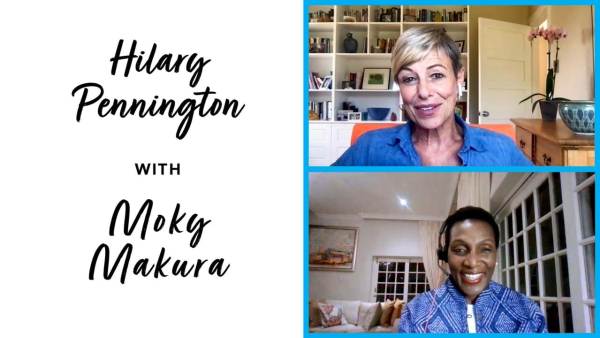
The power of storytelling: Hilary Pennington with Moky Makura
For too long, Africa has been defined in the media by stereotypes and oversimplified narratives. With Ford’s support, Africa No Filter is disrupting these narratives by empowering storytellers helping to create a nuanced, balanced view of the continent and an equitable, inclusive way of how to partner with it.
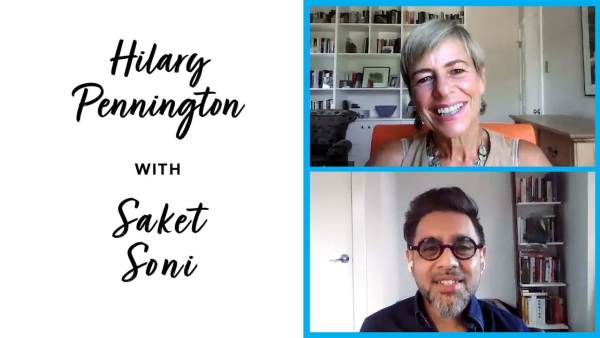
What essential workers need right now: Hilary Pennington with Saket Soni
Disasters present the opportunity to bring us together and give us the chance to reevaluate our priorities and ask what’s really important. Labor organizer Saket Soni sees COVID-19 as a prologue to other threats, like climate change. He says disaster responses need to focus on strengthening essential workers.
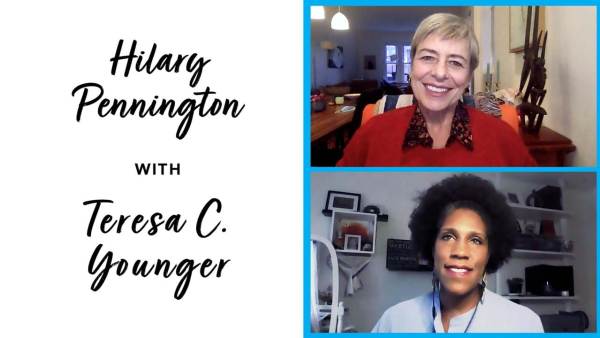
Philanthropy and Black women: Hilary Pennington with Teresa C. Younger
Social justice organizations led by women of color often receive less funding. Teresa C. Younger, CEO of the Ms. Foundation, explains why philanthropy needs to center women of color to address systemic racism and uplift women and girls of color for a more just future.
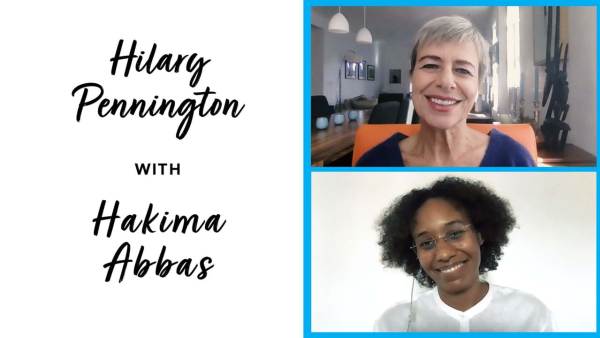
How young feminists are organizing: Hilary Pennington with Hakima Abbas
COVID-19 has impacted the way we work, but it also exacerbated gender inequality in the workplace. Hakima Abbas, of the Association for Women’s Rights in Development, believes we can prevent any further damage by including feminist leaders across the board in devising solutions.
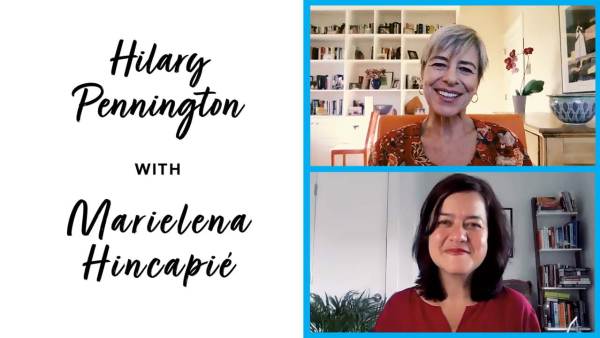
Immigrants are essential: Hilary Pennington with Marielena Hincapié
Immigration has been used as a weapon to divide the United States. The National Immigration Law Center aims to help the country understand that immigrants are not only important members of our communities and essential workers, but they are also valuable political constituencies needed to make American democracy work.
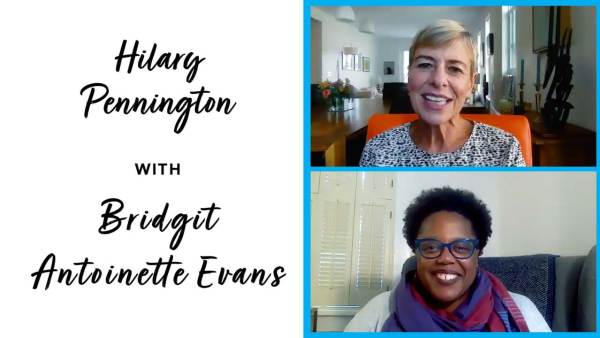
Social justice and pop culture: Hilary Pennington with Bridgit Antoinette Evans
Pop culture plays an important role in advancing social justice. Bridgit Evans of Pop Culture Collaborative produces cultural strategies that build on points of connection to ensure policy changes are not just symbolic. By finding commonalities through culture, she believes we can create a world where everyone feels they belong.
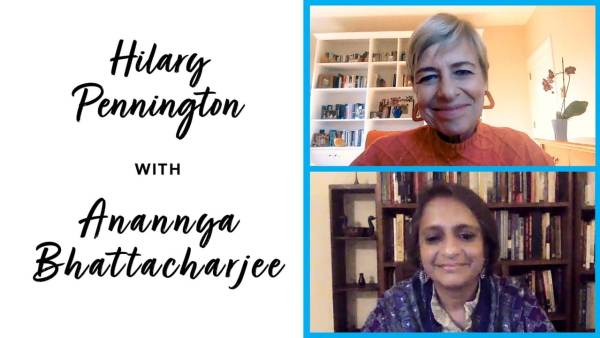
Global work needs to be local: Hilary Pennington with Anannya Bhattacharjee
While the labor movement has worked to improve the lives of garment factory workers globally, activist Anannya Bhattacharjee advocates that solutions need to start locally and come from the ground up to have a significant impact on workers’ lives.
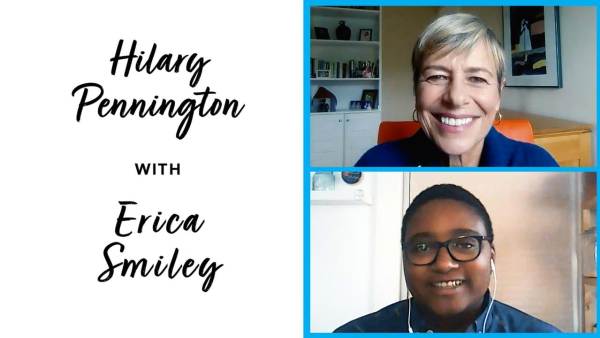
Essential workers are the economy: Hilary Pennington with Erica Smiley
The COVID-19 pandemic has dramatically changed the way we as a world work. As we face this inflection point, Erica Smiley, executive director of Jobs With Justice, believes people—especially essential workers—need to have the right to come together collectively to organize and negotiate their conditions to build a global economy that works for all.

The urgency of this social moment: Hilary Pennington with Eric Ward
We need to dismantle racism to make inclusive democracy truly possible. Eric Ward of Western States Center believes smaller movements can help support bigger waves of change. From creating cohorts of emerging leaders to encouraging small group interactions can help protect democracy and put an end to white supremacy.